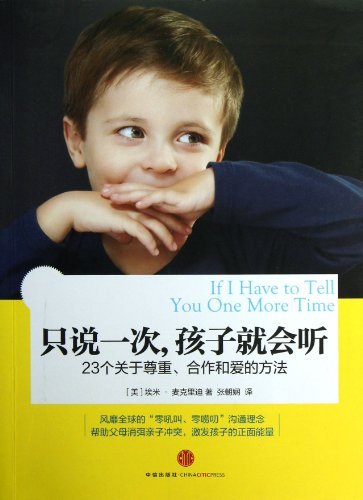What do you think?
Rate this book


270 pages, Paperback
First published August 4, 2011
2-3 YEARS OLD
- Wipe down kitchen chairs and stools with a damp sponge
- Carry in the newspaper or mail
- Pick up toys and clothes
- Wash tables and counters with a damp sponge
- Fold washcloths
- Wash vegetables, tear lettuce, stir
- Help set the table – napkins, silverware
- Feed the pets and refill water (Be sure to provide training on just how much food and water to offer!)
- Help clean own place at the table
- Help put groceries away at kid-friendly level
- Unload spoons and forks from dishwasher
4-5 YEARS OLD (same as previous list, plus…)
- Make own bed – use a simple comforter
- Help fold towels and washcloths
- Clean own bathroom sink with wipes
- Water plants (provide training on how much water)
- Prepare simple breakfast/lunch and clean up
- Polish silver (wearing gloves)
- Empty small trashcans around the house
- Sort white clothes from dark clothes for laundry
- Help with vacuuming, sweeping and dusting
- Transfer clothes from the washer to the dryer
- Dust mop the floor
- Use handheld vacuum for spills and messes
6-8 YEARS OLD
- Wash dishes; load and unload dishwasher
- Simple meal preparation – salads, desserts
- Help change bedsheets and put dirty sheets in laundry
- Pack lunch for school
- Iron cloth napkins
- Fold simple laundry items and put them away
- Dust baseboards
- Vacuum and dust furniture
- Walk pets daily
- Pull weeds
- Get self up in the morning with an alarm clock
- Put groceries away
9-11 YEARS OLD
- Household maintenance: change light bulbs, batteries
- Fold all of own laundry and put it away
- More detailed household cleaning: refrigerator, toilets
- Wash car & vacuum inside of car
- Plant flowers / garden items at change of season
- Assist younger siblings with homework / reading
- Bathe and groom pets
- Weekly trash duties: gather trash & take dumpster out
- Monthly closet & drawer organization
12-14 YEARS OLD
- Change bed sheets independently
- Laundry start to finish
- Wash indoor windows and lower outdoor windows
- Mow lawn, rake leaves, spread mulch
- Administrative tasks in parents’ business
- Prepare family meal 1 day/week using a simple menu
- Manage family recycling efforts
- Babysit siblings for short periods with adult nearby
- Have total responsibility for family pets
- Clean shower and tub